








Planning a journey and having confidence in it, alongside options if it goes wrong, is key to passengers. This report sets out, in face of a complex stakeholder mix and increasing technological innovation, the current offer for information provision to passengers, where aspirations lay and recommendations for Local Transport Authorities and Transport for the North in developing the information offer for passengers.
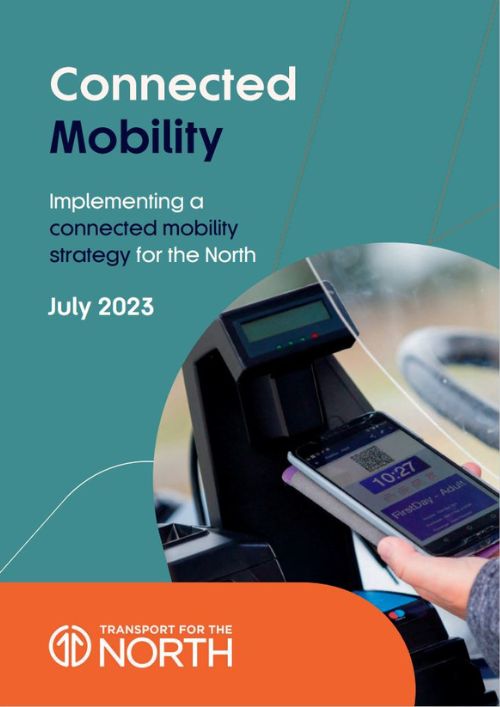
The strategic focus of the Connected Mobility Strategy is to identify implementations that add value to local offers and projects. It builds on, adds value to and facilitates local ambition, decision-making and planning.
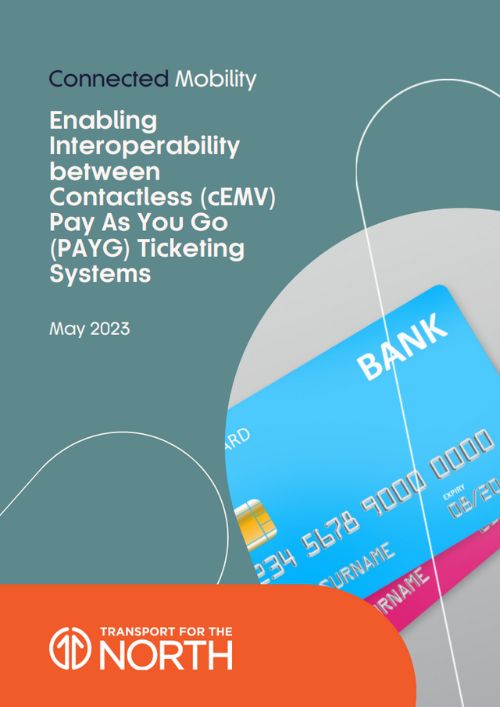
During 2023, Transport for the North has been supporting authorities in the North in understanding how pay as you go could work in their areas. It has become clear that, across industry, there is a need to consider how interoperability can be delivered in an environment with multiple back offices and a need for payment regulation compliance. This report explores this and sets out a potential approach to help spur on debate and encourage early consideration of this challenge.
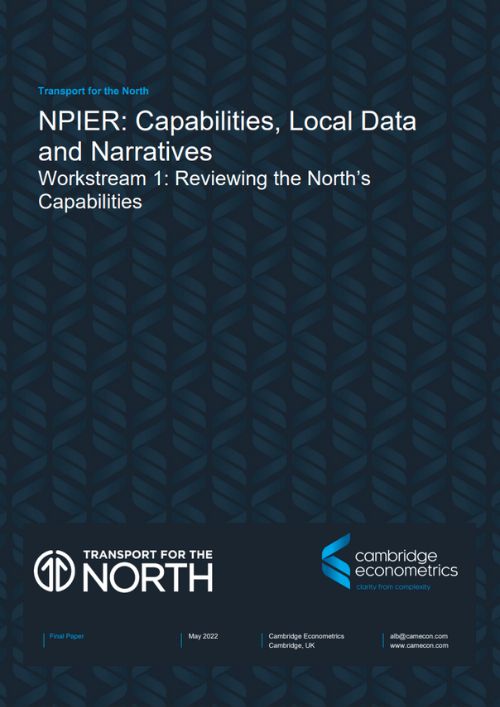
This technical paper takes a data-driven approach to review the North of England’s prime and enabling sector capabilities as defined in the original 2016 Northern Powerhouse Independent Economic Review. Conducted in 2022, the work supports the development of the updated NPIER work published in 2023 and assesses the North’s foundational economy as part of the update work.
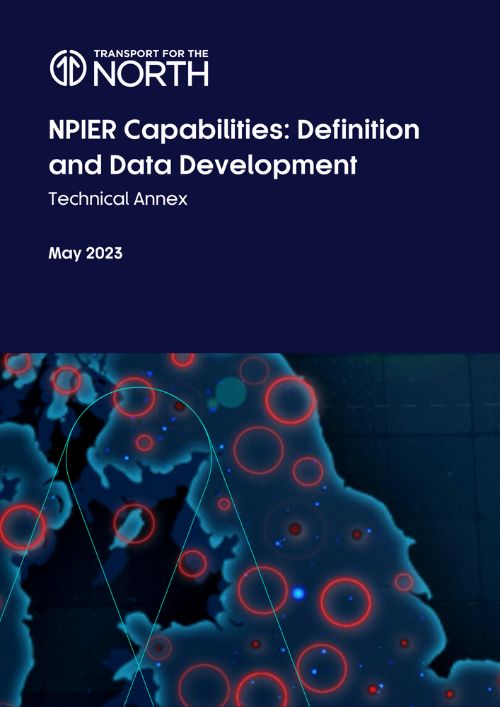
This technical annex sets out the work undertaken by The Data City and Transport for the North to examine industrial sector performance within the North of England economy. It forms a key part of the evidence base supporting the update of the Northern Powerhouse Independent Economic Review, in particular to understand how the Prime and Enabling Capabilities, set out in the 2016 NPIER, had performed and adapted in the wake of major structural economic changes over the past 5 years.
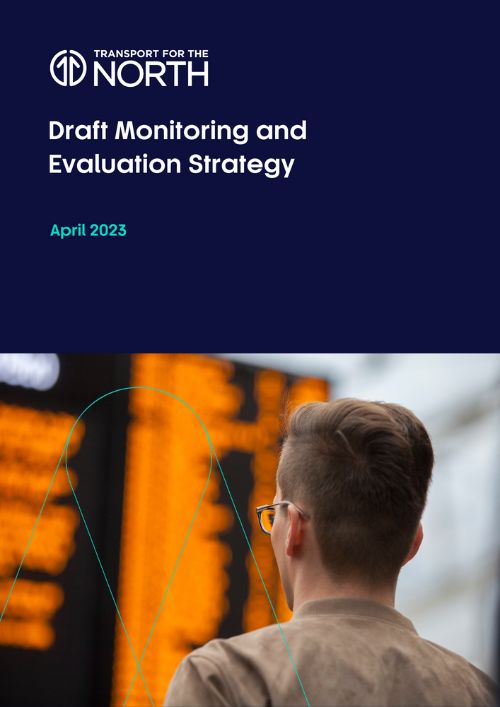
Our Monitoring and Evaluation Framework consists of a series of headline, core, and supplementary metrics developed in collaboration with partners that can be used to monitor the Strategic Transport Plan.
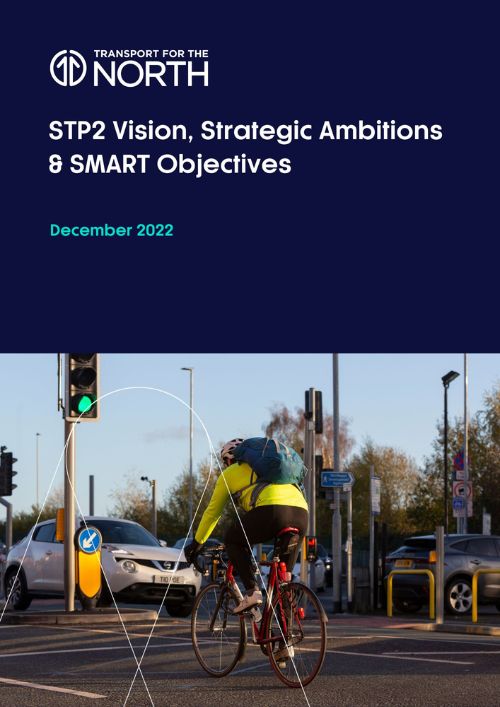
This document sets out the proposed vision, objectives and metrics for the second statutory Strategic Transport Plan (STP) for the North of England being developed by Transport for the North.
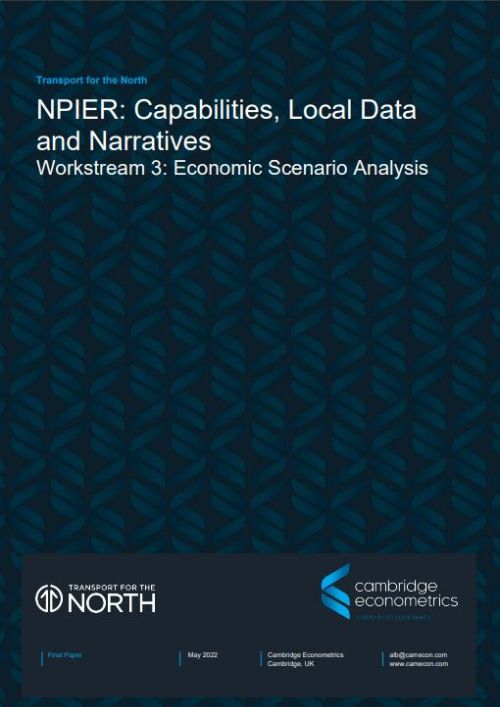
The NPIER: Capabilities, Local Data and Narratives report appraises emerging policy themes in the economic scenario development of Strategic Transport Bodies in the UK and other institutions in the EU & US. This work acts to support and justify the themes being modelled for the NPIER refresh programme.
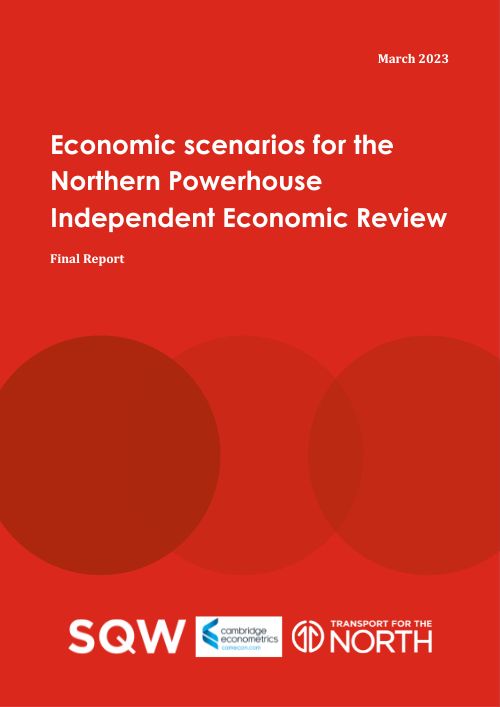
The economic scenarios for the Northern Powerhouse Independent Economic Review outlines the modelling outcomes of six economic scenarios developed with Northern Partners; business as usual, four change scenarios and a new transformational vision of the North’s economy by 2050, to establish a new economic ambition for the North.